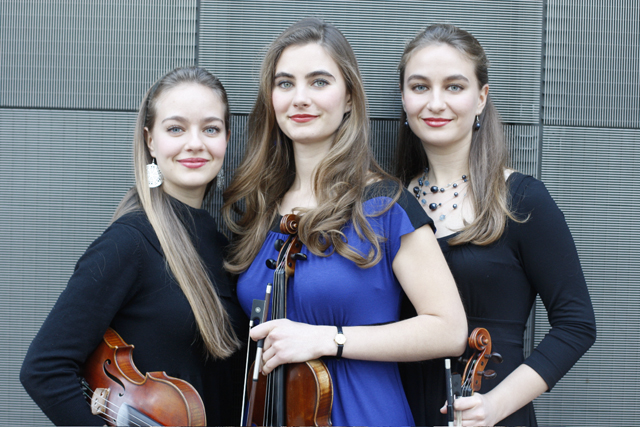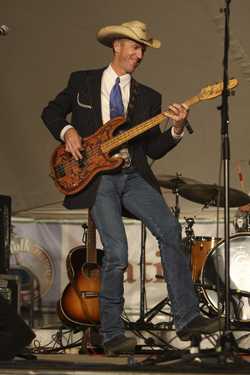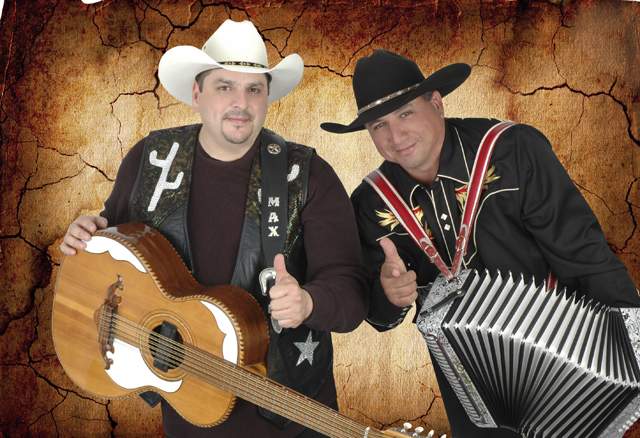
Few places in the world capture the imagination like the American West. From the range, ranch, reservation and roadhouse, from the valley of the Rio Grande to the Bitteroot Mountains, Don’t Fence Me In: Songs explores the region’s celebrated musical and oral culture. Cowboy songs and poetry, high plains yodeling, western swing fiddle and vocal harmonies, lively Tex-Mex polkas and rancheras, and Northern Plains pow-wow drum and song are performed by an assemblage of exceptional artists – all working cowboys and other authentic representatives of today’s western culture. Tickets are $45 general, $45 Senior/Child and $15 HSU students. Tickets are available at the University Ticket Office and at humboldt.edu/centerarts.
This special evening of Americana will feature Wylie & the Wild West, cowboy songs & High Plains yodeling; North Bear, pow-wow drum & song; The Quebe Sisters Band, Western swing & Texas fiddling; Los Texmaniacs, Tex-Mex conjunto; and Paul Zarzyski, rodeo poet, exceptional artists that are all authentic representatives of today’s West. Appearing several times throughout the performance in different musical roles and configurations, they express the vitality, power and ever-evolving nature of tradition.

Five-thirty in the morning is not an hour generally claimed by musicians. Despite his successful career as one of America’s most popular western entertainers, world-class western yodeler and singer Wylie Gustafson still gets up everyday to tend the livestock. It is what grounds him and is the backbone of his art. For Wylie, the ranch and the recording studio are inseparable. “The connection between ranching and my music is extremely close,” he says. “Most of my songs are born out of the environment where I live and punch cattle. When I write an upbeat song, I make sure it’s a song that a cowboy can dance to. When I write a more lyrical song, I make sure that a real cowboy will be able to relate to it somehow.” Wylie & The Wild West have traveled the world over, and appeared on the Grand Ole Opry over 50 times, performed at venues from Lincoln Center to the Houston Rodeo & Livestock Show.
In pow-wows around the country, the intense, repetitive heartbeat of the drum and soaring falsetto accompany agile dancers in competition and in ceremony. One of the newest and most powerful of the Northern Plains drum and song is North Bear. Founded in 2003 by brothers Jermaine and Luke Bell of the Northern Arapaho tribe, North Bear’s members represent tribes from across the Great Plains including the Oglala Lakota, Cheyenne and Paiute. The group has gained recognition as a foremost exponent of the Northern Plains “straight” or “traditional” singing. This powerful style employs falsetto and nonword musical syllables called “vocables” that increase in volume and tempo as the song progresses. While firmly rooted in Plains tradition, North Bear’s music also represents innovation within American Indian tradition. North Bear composes and performs hand drums songs with a youthful energy and style influenced by modern R &B and hip-hop that makes for exciting live performances.

Three lovely and very talented fiddling sisters from Fort Worth, Texas are creating quite a stir. Playing western swing, country and western, and traditional Texas fiddle tunes, Hulda, Sophia and Grace Quebe (pronounced KWAY-bee), ages 19, 22 and 24 respectively, bring a fresh, youthful energy to the rich musical traditions of the Lone Star State. They not only fiddle, but also sing, in three-part harmony, with an amazing vocal blend that it seems only siblings can achieve. (Imagine the Andrews Sisters joining up with Bob Wills and his Texas Playboys.) All three of them have been Texas State Champion fiddlers, and won titles at the National Old-Time Fiddlers Contest in Weiser, Idaho. The Quebe Sisters are joined by their accomplished fiddle teacher and vocal arranger Joey McKenzie, who provides masterful rhythm guitar accompaniment, and by bassist Drew Phelps.
Emerging from San Antonio’s vibrant Tejano music scene, Grammy award winning Los Texmaniacs is one of the most exciting exponents of conjunto tejano. Melding the classic conjunto sounds – rancheras, polkas, waltzes, cumbias, huapangos and schottishes – with Texas rock, blues and R&B, this talented quartet is putting its own stamp on musical traditions that run deep in their own families and in south Texas communities. Born in the valley of the Rio Grande along the Texas-Mexican border, conjunto (“group” in Spanish) is a lively dance music that has its beginnings in the late 19th century when German, Czech, and Polish immigrants introduced the button accordion into Mexican working class communities in southern Texas. By the early 1930s, the modern conjunto sound emerged as a boisterous and distinctive Tex-Mex fusion.
Recipient of the 2005 Governor’s Arts Award for Literature, Paul Zarzyski, Montana’s rodeo poet laureate, has been “spurring the words wild across the open range of the page,” as he puts it, for 35 years. When asked to describe himself, Paul Zarzyski (rhymes with “whiskey”) says that he’s a “rodeo poet, if any handle has to be hung on me at all.” In fact, Paul is one of the best known, and best, of the “rodeo poets,” a genre that his artistry both expands and transcends. Zarzyski grew up in a small town in northern Wisconsin where his father mined iron ore. At 22, he moved out to Montana to study under the well-known poet Richard Hugo in Missoula and within a year found himself pursuing his twin passions for poetry and a second “lucrative” career, bareback bronco riding. Paul spent more than a dozen both amateur and professional, until a bad back (“the motor mounts rusted out”) ended his bronc riding days. He now makes his living, he says, borrowing the title of a James Dickey essay, “Barnstorming For Poetry.”
For more information and credit card orders, call CenterArts at 826-3928 or at humboldt.edu/centerarts.